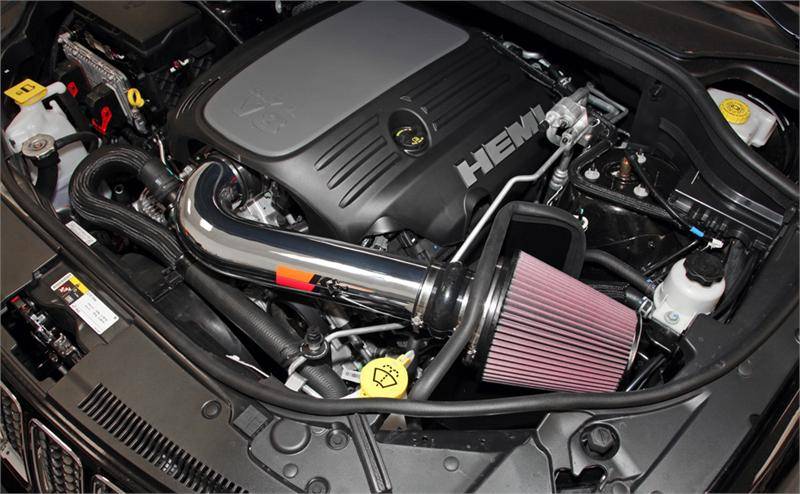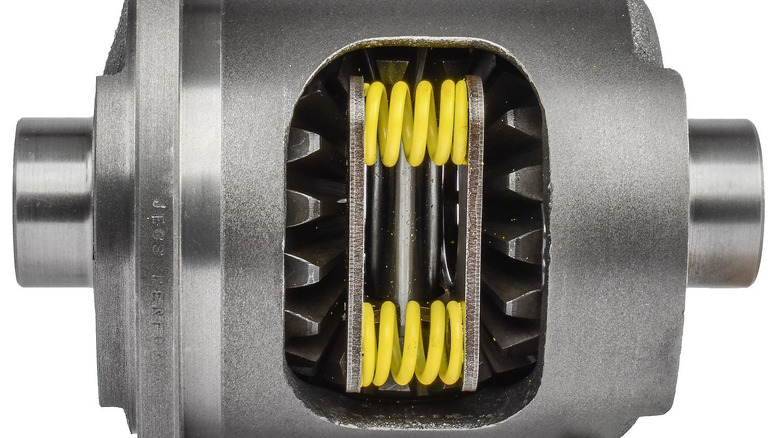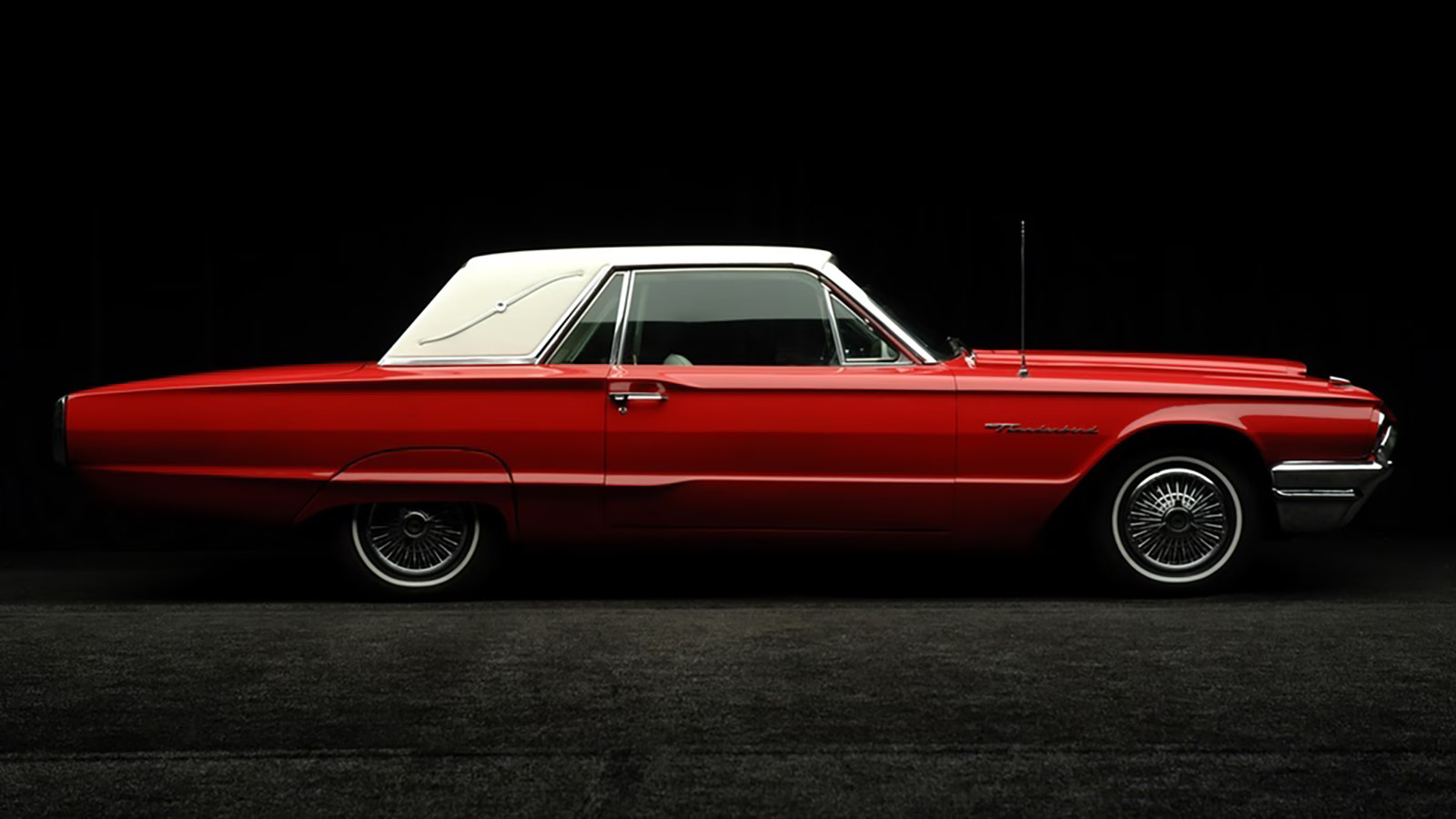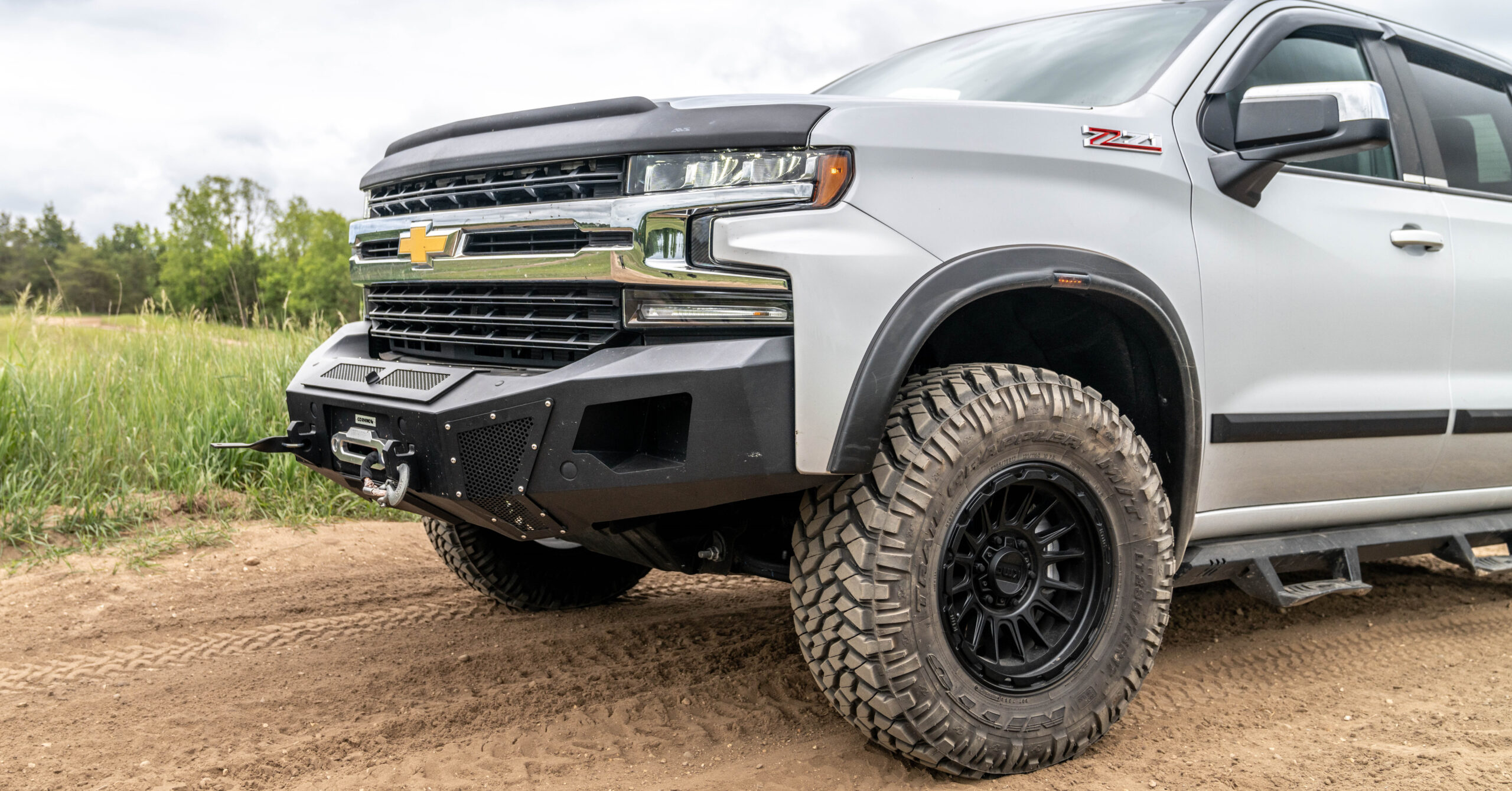Fuel and oxygen are two essential ingredients that keep the engine working. Usually, it seems like the fuel is the most important of the two. It’s because driving a vehicle means thinking about fuel almost every day, bothering about the price, and understanding that no fuel in the tank means the car will be dead.
But oxygen, specifically its clean and healthy air intake, is no less important in the proper work of the vehicle’s engine. Consider this, a standard engine requires more air than fuel in the mix for proper work. Much more. Fifteen times more actually.
A healthy mix of fuel and oxygen is good for all parts of the engine. But there are lots of circumstances where the mix would be compromised. What’s more, any stock air intake system already supplies less oxygen than required due to cheap materials and low-quality design.
K&N offers high-quality upgrades of your stock Air Intake Systems. Highly acclaimed by owners of different types of vehicles, K&N produces Intake Systems that improve the performance of the engine and filter the air with great precision.
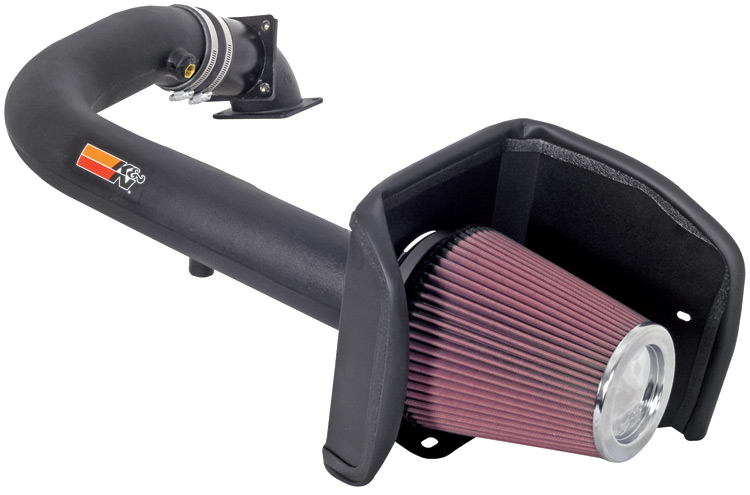
Choose K&N Rather Than Stock Intake System
In every case, replacing the stock Air Intake System with an aftermarket product is a smart decision. Not only you will install a better system, but the engine itself would be protected against imperfections of the stock kit. These imperfections reduce the performance, make you pay more in the long run, and can cause serious malfunctions.
K&N manufacture Air Intake Systems that are better and enhanced in all areas of functionality.
- High-quality material of K&N filters is designed to be air efficient and effective in filtering all the dirt, dust, and even smaller particles out of the incoming air.
- K&N tubes are designed to be aerodynamic, which reduces the turbulence on the way to the engine’s system.
- The air receives less heat, so the oxygen produces better combustion in the mix with the fuel.
- K&N filters can be cleaned, which makes them reusable without losing efficiency.
Stock intake systems are usually equipped with low-quality paper filters. They cannot be cleaned for the second cycle of use, and the material is usually unnecessary thick. Tubes of the stock air intake systems are usually not very efficient in terms of providing effective air movement. The low efficiency of tubes and filters affects combustion and fuel use. Air has no ability to move freely and effectively in the stock systems, which creates unnecessary heat and turbulence.
Of course, stock air intake systems can be used on a permanent basis, but it is much better to install an aftermarket kit. It would increase the performance and ensure the well-being of the engine on that front. The best choice on the market right now is K&N vehicle products.
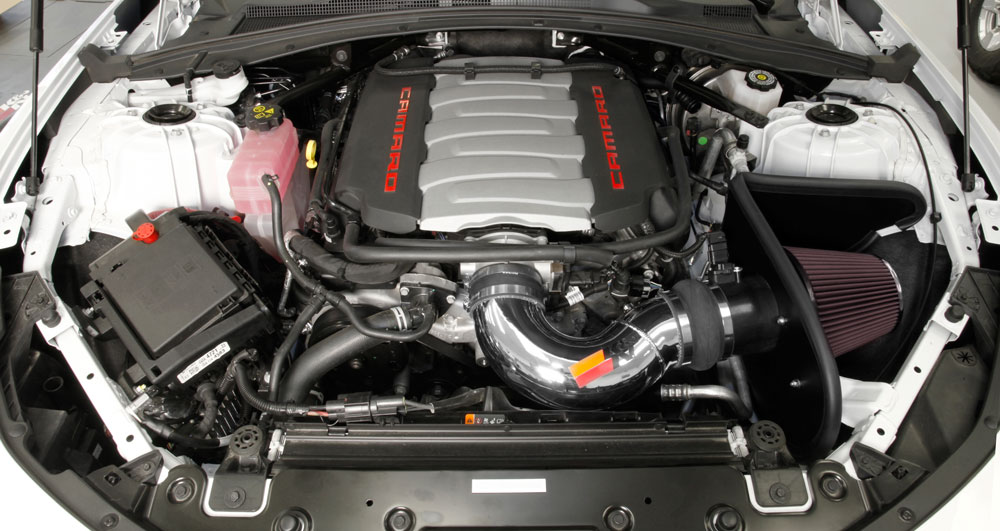
K&N Specializes in Cold Air Intake Systems
Due to the design of the tube and filter, and the special heat-protection shield, the K&N air intake system keeps the air cooler than the standard stock intake system. Special performance filters provide fifty percent more of the air stream than a simple paper filter used in stock intake systems. Tubes are created to provide smooth air movement, which leads to less turbulence and heat.
Cold air is better for combustion because of the density, meaning there are more oxygen molecules. Stock air intake systems usually provide the engine with heated up air. K&N systems correct this mistake, which leads to the vehicle’s enhanced horsepower and performance.
How to Choose the Right K&N Air Intake Model for My Vehicle?
K&N offers air intake systems compatible with different models and manufacturers of vehicles. Customers can choose an Air Intake System for a specific type of vehicle: cars, trucks, motorcycles, RVs, or vehicles designed to perform in sports competitions. You can also select by the year when the vehicle was produced, by model, or by engine type.
K&N makes sure to always have modern, high-quality products on the market. Here are some of their Air Intake Systems worth mentioning.
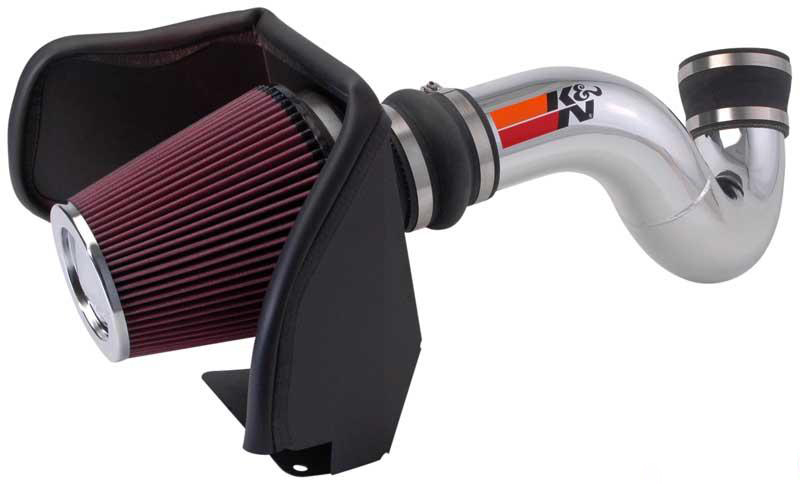
77 and 69 series Intake Systems with Mandrel-Bent Aluminum Tubes
Mandrel-Bent Aluminum tubes possess smooth surfaces. This is due to the process of manufacturing that eliminates any wrinkles and other defects in the design. This type of tube improves air movement, reduces the heat, and increases the amount of oxygen flowing to the engine.
These series are manufactured with High-Flow Air Filters that possess high-end qualities. The filter consists of oiled cotton material, which allows for washing and reusing it for years. This filter can be used for up to one hundred miles without going through maintenance.
Additional shield installed in these models protects the air intake system from the engine’s heat, keeping the oxygen dense and cool.
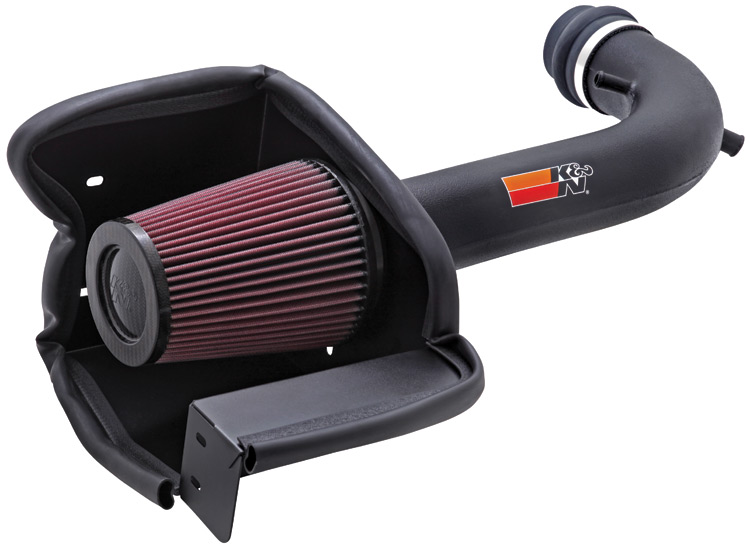
57 and 63 series Intake Systems with Roto-Molded High-Density Polyethylene
High-Density Polyethylene is a high-durability, recyclable material used for the tubes in these series. This material possesses a high rate of strength. Thermal and chemical resistance is also a significant advantage of High-Density Polyethylene.
Due to HDPE tubes, Air Intake System can better protect the oxygen from heat. High-Density Polyethylene tubes are designed to increase the air current, which in turn improves the engine performance and horsepower.
These models are manufactured with High-Flow Air Filters of a bigger size. This design extends the time between required cleaning.
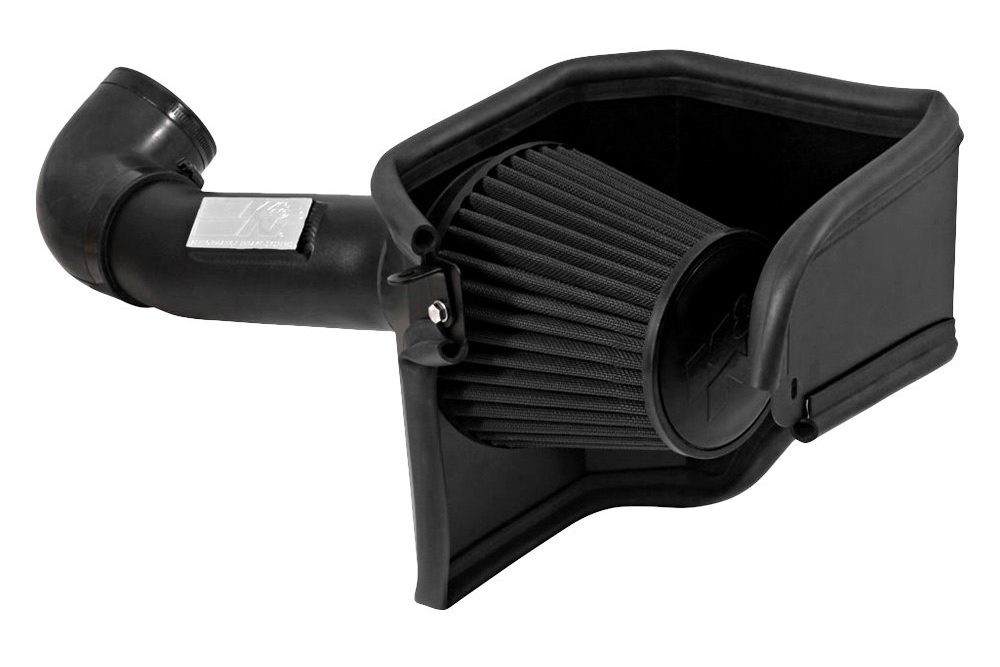
71 series Intake Systems with Blackhawk Induction
These models are manufactured using synthetic filtration materials that do not use oil. All components have black color, while aluminum parts are coated with black powder. Synthetic filtration materials are layered using Dryflow technology. It increases the air current and protects the engine from particles without using oil.
An additional shield made of steel is installed in this model to protect the air intake system from the engine’s heat.
Intensify the Horsepower of Your Vehicle with K&N
Air Intake Systems manufactured by K&N are designed to have a significant increase in horsepower and performance. Although the amount of additional horsepower gained by upgrading varies between specific vehicle types and models, the result is guaranteed!
Each K&N series is processed through different tests to ensure performance and quality. The approximate gain in horsepower for some models was announced to be between 10 and 15.
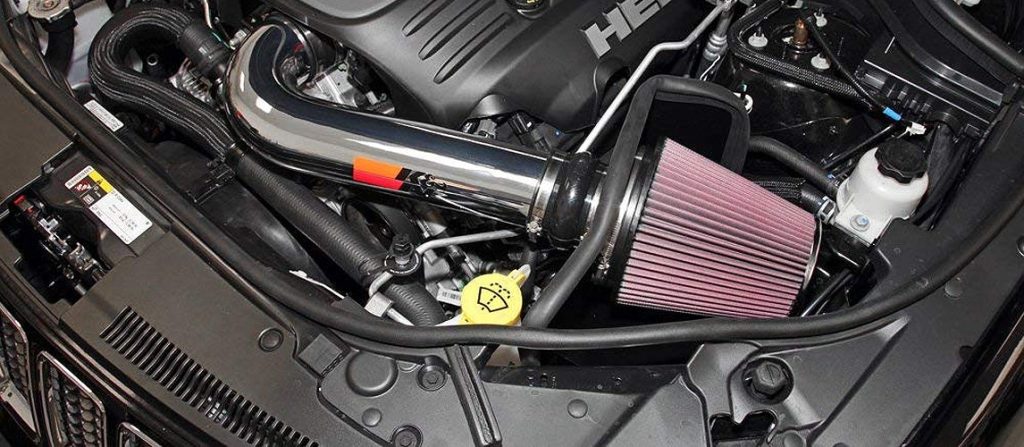
Difference Between the Stock Filter and High-Flow Air Filter
Stock paper filters are designed to gather dirt and dust only on the surface of their paper material. It means that the filtering is not efficient overall. Another disadvantage of stock filters is that they tend to decrease in performance over time, due to dust and dirt accumulating on the surface and “clogging” the filter. Moreover, after one life cycle filter has to be replaced.
High-Flow Filters, on the other side, are designed to contain as many particles as possible without interfering with a healthy air intake. They can be detached easily, cleaned, and installed back in the system without reduction in performance.
High-Flow Air Filters are manufactured using multiple layers of material. This design also includes pleats. The main material of these filters is cotton, which does a much better job at gathering dirt. Multiple layers are more efficient at filtering air than just a one-time surface filtering. High-Flow Air Filters are designed to gather even the smallest particles while providing good air movement at the same time.
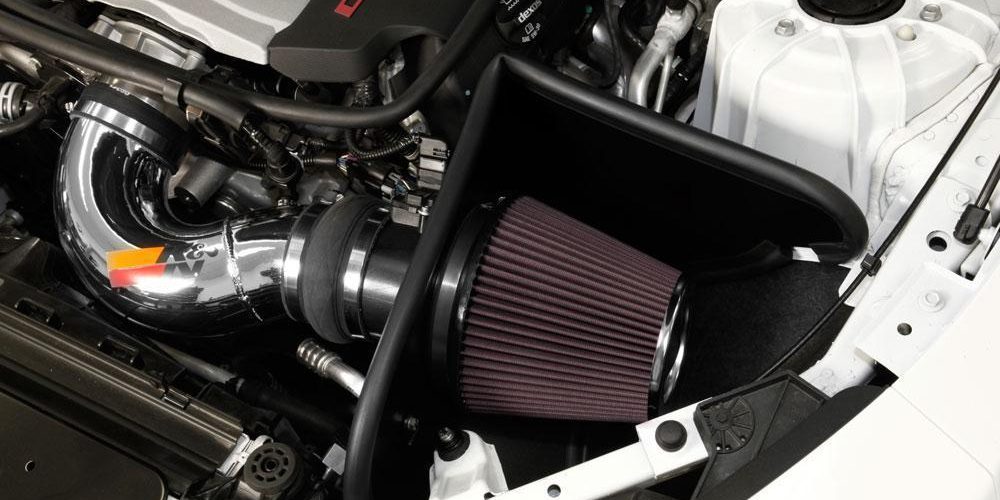
What is an Air Intake System and How Does It Function?
In simple words, an air intake system grabs air, cleans it, and lets it get mixed with fuel to keep up the engine’s work.
Usually, a car’s air intake system consists of three main parts.
1. The filter cleans the air from particles. This is the first section of the intake system the air has to go through. The filter is extremely important to keep dirt, dust, and other particles from the engine’s system as a whole.
2. Mass flow sensor measures the amount of air coming to the engine. After going through this section, the air moves to the throttle body.
3. Throttle body is the last section of the air intake system before the engine’s part starts where the fuel mixes with oxygen. This section controls the correct amount of air sent into the engine’s system.
A Little History About Air Intake Systems
Before wide recognition of Air Intake Systems, carburetors were used for creating a proper mix of fuel and air.
Then, the first air intake system installation in a common vehicle took place in the 1980s. The kit had tubes for intake made out of molded plastic, and air filters from cotton. Ten years later, Japan started manufacturing and selling its intake systems designed for sports vehicles. It was sold abroad and very soon gained recognition and reputation as a modern substitute for engines with carburetor systems.
Today vehicle’s air intake systems mostly come with metal tubes, coated or painted to look great even if it’s under the hood. K&N Air Intake Systems with High-Flow Cotton Filters were first produced in the late 60s. Today, it is the most respectable company manufacturing top-tier vehicle air intake systems.
